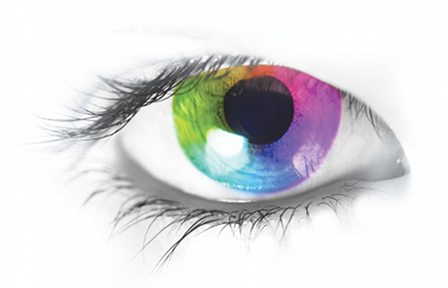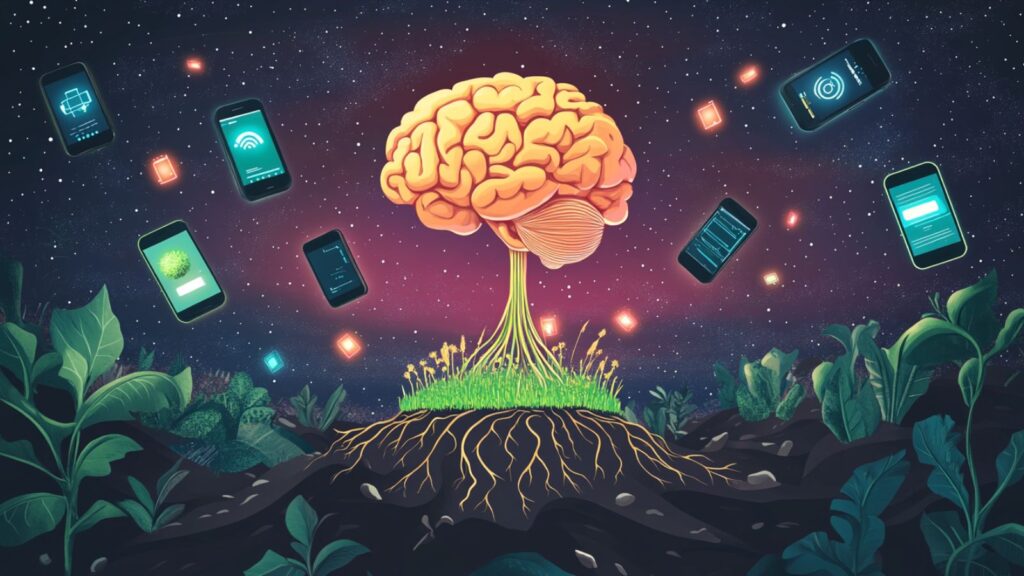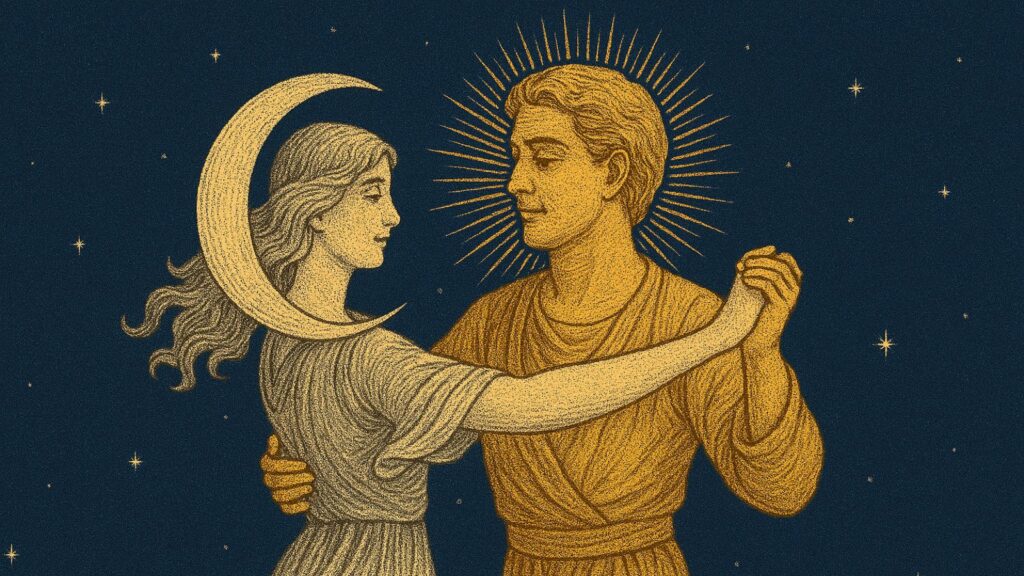The following is excerpted from The Psychedelic Future of the Mind, published by Inner Traditions, Bear & Company.
Current research offers some tantalizing support for claims that psychedelics can be used to enhance cognition, improve intelligence, and strengthen cognitive studies.
Cognitive Enhancement
Experimental evidence of psychedelic cognitive enhancement comes from studies of practical problem solving, abstract concepts, and psychotherapy.
The Sleeping Giant of Psychedelics’ Future — ?Innovative Problem Solving
A significant instance of problem solving resulted in a Nobel Prize for Kary Mullis. Until the invention of the polymerase chain reaction (PCR), a common problem in biology was that biological samples were often too small to analyze, but Mullis solved that and won a Nobel Prize. He described how LSD aided him in doing so.
“PCR’s another place where I was down there with the molecules when I discovered it and I wasn’t stoned on LSD, but my mind by then had learned how to get down there. I could sit on a DNA molecule and watch the [indistinct] go by. . . . I’ve learned that partially I would think, and this is again my opinion, through psychedelic drugs . . . if I had not taken LSD ever would I have still been in PCR? I don’t know, I doubt it, I seriously doubt it.” (Mullis 1998; “Horizon: Psychedelic Science” 1997)
From the point of view of psychedelic cognitive studies, Mullis’s example is noteworthy because he did not have his insight while taking psychedelics but instead used psychedelics to increase his ability to visualize, then transferred that cognitive skill back to his ordinary mindbody state. This confirms the idea that some skills learned in one state can be transferred to another. Transference and nontransference between mindbody states is itself a cognitive process that deserves study — learning to remember dreams, for example. Learning to increase this flow, if it is possible, would increase access to stores of information and possibly to new cognitive skills.
Unlike Mullis’s experience of transferring a skill back to his ordinary state, most instances of psychedelic problem solving occur while the person’s cognitive processes are psychedelically augmented. This is most clearly illustrated by “Psychedelic Agents in Creative Problem Solving: A Pilot Study,” by Willis Harman, a professor of engineering economic systems, and a team of researchers at Stanford Research Institute. Working with twenty-seven men who were “engaged in various professional occupations, i.e., engineers, physicists, mathematicians, architects, a furniture designer, and a commercial artist and had a total of 44 professional problems they wanted to work on,” the Stanford Research Institute team divided them into groups of three or four and gave them 200 milligrams of mescaline, followed by a quiet period of listening to music. Then they had snacks and discussed their problems with their group. Following this they spent three or four hours working alone on their problems. As a result of psychedelic enhancement, the practical results were impressive.
“Pragmatic Utility of Solutions. The practical value of obtained solutions is a check against subjective reports of accomplishment which might be attributable to temporary euphoria. The nature of these solutions was varied; they included: (1) a new approach to the design of a vibratory microtome, (2) a commercial building design accepted by client, (3) space probe experiments devised to measure solar properties, (4) design of a linear electron accelerator beam-steering device, (5) engineering improvement to magnetic tape recorder, (6) a chair design modeled and accepted by manufacturer, (7) a letterhead design approved by customer, (8) a mathematical theorem regarding NOR-gate circuits, (9) completion of a furniture line design, (10) a new conceptual model of a photon which was found useful, and (11) design of a private dwelling approved by the client.” (Fadiman 2011, 132)
James Fadiman, one of the coauthors of this study, describes it and other psychedelic approaches to problem solving in his 2011 book The Psychedelic Explorer’s Guide. His valuable descriptions of their process as seen by an investigator — insider and quotations from the problem solvers themselves draw attention to this sleeping giant of psychedelics’ future practical problem solving. It is time for researchers to awaken this giant and for federal agencies and local institutional review boards to move forward and encourage creative invention.
It is a widely known “inside secret” that psychedelics also contributed to the rapid innovation and growth of the personal computer industry (Markoff 2006), and probably the greatest monetary payoff from using psychedelics occurred when the problem of a little start-up software company vying with other start-ups for the eyes of potential customers was solved.
“The big quandary for software companies was getting into the market place, finding shelf space. But there was a new way of doing that I thought of called ‘shareware,’ and I think the concept was very unusual, and I think the concept came to some extent from my psychedelic ?experience. . . . So that worked. It worked pretty well.” (Wallace 1997)
Bob Wallace’s idea was to give away programs and ask people to pay whatever they could and wanted to. Because they were free, thousands of people started using them, and this helped his little, unknown start-up company grab market share so that eventually it could charge for its products and begin to turn a profit: micrograms for Microsoft.
Experimental Studies of Abstract Concepts
Much research in the cognitive sciences has to do with memorizing things not worth memorizing, solving silly puzzles, and other unrealistic tasks that lend themselves to clean laboratory research designs but have little relevance in life. This barrier was broken and cognitive studies advanced to higher level thinking thanks to psilocybin. In 2006 and 2008, experiments showed that psychedelics can extend cognitive studies to topics that are important in people’s lives but were previously beyond experimentation-meaningfulness and significance among others (Griffiths et al. 2006, 2008, 2011).
In previous chapters we’ve looked at the implications of these experiments for values and religion; here our concern is their implications for higher level cognitive psychology. They found, “at 2 months, the volunteers rated the psilocybin experiences as having substantial personal meaning and spiritual significance and attributed to the experience sustained positive changes in attitudes and behavior consistent with changes rated by community observers” (Griffiths et al. 2006, 268). To account for the possibility that their volunteers might overrate their own behavior, the Hopkins team interviewed friends and close family members to see if they noticed any changes, which they confirmed. This experiment illustrates how psychedelics can advance experimental studies far beyond trivial attention span and boring digit-memory tasks to the high level abstractions that give meaning to people’s lives.
Three written comments express the essence of the participants’ experiences.
- The understanding that in the eyes of God — all people . . . were all equally important and equally loved by God. I have had other transcendent experiences, however, this one was important because it reminded and comforted me that God is truly and unconditionally loving and present.
- Freedom from every conceivable thing including time, space, relationships, self, etc. . . . It was as if the embodied “me” experienced ultimate transcendence-even of myself.
- A non-self self held/suspended in an almost tactile field of light. (629)
These three samples of enhanced spiritual cognition demonstrate that psychedelics provide a breakthrough for the cognitive sciences: instead of being limited to surveys, random self-reports, and lightly grounded speculation about higher level cognitive processes such as meaningfulness, sacredness, and significance, psychedelics enhance cognitive sciences with an experimental method of investigating these and similar high-level, abstract conceptualizations.
Experimental Religious Studies
With its heavy reliance on words, beliefs, and text, current religion, of course, is heavily cognitive, so it provides another avenue for advancing cognitive studies. “Experimental religious studies” sounds impossible, but thanks to psychedelics it isn’t. The findings of Griffiths’s group and other reports illustrate one way to use psychedelics to study higher-level abstractions, in this case religious ones.
As mentioned earlier, the best example of the long-term influence of psychedelics on thinking is Rick Doblin’s 2001 study “Pahnke’s Good Friday Experiment: A Long-term Follow-up and Methodological Critique.” Doblin is the founding executive director of the Multidisciplinary Association for Psychedelic Studies. Its website is one of the richest of the psychedelic Internet domains. MAPS is primarily interested in psychotherapy, but reading its publications and website from a cognitive perspective is like stumbling into a great hidden treasure. Doblin’s follow-up study documenting the effects of psilocybin given to seminarians a quarter of a century earlier speaks to the power of psychedelics ?as experimental treatments and to mystical experiences as experimental variables. I look forward to reading a “Journal of Experiential Religion.”
Cognitive Aspects of Psychedelic Psychotherapy
Psychedelic psychotherapy is more than a treatment. It has implications beyond health; it provides clues to how our minds work. How does thinking change during successful psychotherapy, such as when psilocybin is used to reframe death anxiety in the work of Charles Grob and his coresearcher Alicia Danforth, or MDMA-assisted psychotherapy is used to reduce post-traumatic stress disorder in patients who have been intractable to other treatments, as in the work of South Carolina psychiatrist Michael Mithoefer?* Other clinical leads suggest treating cluster headaches, obsessive-compulsive disorder, neuroses and psychoses, depression, alcoholism, and addiction.
Except for cluster headaches, these cures are usually correlated with mystical experiences. Cognitively, what phenomenological shifts occur during mystical experiences, with the power to reframe thoughts, emotions, and identity so much that they apparently often cure death anxiety, post-traumatic stress disorder, and addictions and alcoholism? Hood’s mysticism scale and similar measures of mystical experience may provide clues. In his 1996 “The Facilitation of Religious Experience,” Hood summarizes the evidence that psychedelics often produce mystical experiences, and in his 2006 “The Common Core Thesis in the Study of Mysticism,” he compares phenomenologically derived and empirically derived models of mystical experience. For cognitive scientists who want to study higher order processes experimentally, the items in Hood’s scale may be clues to how to study this type of cognitive ?reframing.
Improving Intelligence
Howard Gardner, best known for his theory of multiple intelligences, defines intelligence as “the ability to solve problems or produce goods of value to society” (1983). The instances cited above meet his standard for intelligence. Unfortunately, Gardner, like other scholars, defines and describes intelligence as it exists only in our ordinary, default mindbody state. A full view of intelligence would include the skillful use of all states. Recognizing that varieties of intelligence exist in states other than our usual awake state raises the question of whether other cognitive processes have their analogs in other mindbody states too, suggesting a future for multistate cognitive science — researching the question, “How does cognition vary from mindbody state to mindbody state?”
In The Triarchic Mind, Robert Sternberg suggests another criterion for intelligence, defining it as “mental self-management” (1988). By that standard, someone who can access a large collection of information-processing programs and their resident abilities is more intelligent than someone with a smaller repertoire. Kary Mullis’s learning to strengthen his visualization capacity and transfer it to his usual state is an example. What about someone who is highly skilled at selecting mindbody states, achieving them, and using their resident abilities? Because selecting mindbody states is an executive function prior to the use of specific states, the word metaintelligence may be useful when discussing this kind of intelligence.
Enriching Cognitive Studies
Not only can cognitive science investigate cognitive enhancement, but by surpassing its current boundaries it can also accelerate the pace of its own scientific progress. Identifying and characterizing cognitive processes (and other processes) that exist in all mindbody states will demand new talents for skilled psychologists, phenomenologists, and neuropsychologists. In order to develop this agenda, a new generation of researchers needs to become comfortable studying these states both objectively and subjectively.
Cognitively, psychotechnologies are ways of installing information-processing programs in our minds. Among the many possibilities, psychedelics illustrate a vast multistate frontier for the future of cognitive studies, one in which mindbody states are sometimes “independent ?variables” — the things that experimenters change — and sometimes “dependent variables” — the things that change as a result. To put it another way: independent variables are the inputs and dependent variables are the outputs. For example, in the Johns Hopkins studies, psilocybin was the independent variable, and people’s experiences were the dependent ones.
Examples include the clinical laboratory experiments we have already looked at in earlier chapters such as those by Griffiths, Grob, Mithoefer, and Grof. Hood’s mysticism scale and Lerner and Lyvers’s study of values and beliefs of psychedelic users illustrate survey methods. Walsh and Grob’s 2005 Higher Wisdom and Badiner’s 2008 Zig Zag Zen present in-depth phenomenological interviews. Nichols and Chemel connect chemistry and religious cognition in their article 2006 “The Neuropharmacology of Religious Experience.” An Internet search of clinical trials using hallucinogens (excluding cannabis and related compounds) locates more than a dozen current trials, while the MAPS website keeps readers up-to-date on completed, current, and planned research.
Perhaps the most curious and exciting prospect psychedelics offer is their impact on humanistic and religious concepts such as meaningfulness, significance, portentousness, values, transcendence, self-concept, aesthetic perception, identity, beliefs, and sacredness. These abstractions form the vitals of humanistic studies, but until psychedelics, they have been hard to study in experiments. The provocative psychedelic studies throughout this book indicate that these abstractions may become dependent variables when mindbody states are the independent variables.
Consilience
In 1998 biologist Edward O. Wilson, author of two Pulitzer Prize-?winning books and recipient of other honors and awards, challenged the scientific community to build a multidisciplinary cognitive structure that integrates all branches of knowledge. He called his book and the project Consilience. Psychedelics are a natural for this major league intellectual project. They are naturally interdisciplinary. They link topics from the neurochemistry of our brains to Greek mythology and film criticism. As the Griffiths et al. studies of the effects of psilocybin on personal meaningfulness and sacredness exemplify, psychedelics provide one way to overcome the problem of integrating different lines of inquiry into a multilayered scaffolding of empirical evidence.
How do the chemical, biological, psychological, cognitive, and social levels influence each other? With psychedelics questions such as “How do biochemical changes affect beliefs?” are open to experimentation. Conversely, researchers can experimentally examine the question “How do someone’s beliefs and cognitive expectations influence the outcomes of biochemical experimental treatments?” By providing models for independent variables on one level and dependent variables on others, meditation, psychedelics, and other mindbody psychotechnologies provide ready-made roads to advance the consilience project.
Wilson recognized this. “Shamans preside over the taking of hallucinogenic drugs and interpret the meaning of the serpents and other apparitions that subsequently emerge” (1998, 72). He reports, “[The shaman’s] drug of choice, widely used in the communities of the Rio Ucayali region, is ayahuasca [pronounced eye-uh-WAHS-ska], extracted from the jungle vine Banisteriopsis.” Illustrating consilience, he follows this with, “The sacred plants, which have been analyzed by chemists, are no longer mysterious. Their juices are laced with neuromodulators that in large oral doses produce a state of excitation, delirium, and vision” (73). Wilson recognized that chemical input yields cognitive output, yet another instance of the chemical-cognitive relationship that most of the researchers mentioned above have implicitly noted.
Discovering Hidden Parameters of the Mind
Although the mentioned studies have implications for the cognitive sciences, they were not expressly designed to do so. Shanon’s The Antipodes of the Mind: Charting the Phenomenology of the Ayahuasca Experience intentionally hybridizes cognitive psychology and psychedelics.
“Not only can a cognitive-psychological analysis make a crucial contribution to the study of Ayahuasca, the converse is also the case — the study of Ayahuasca may have implications of import to our general understanding of the working of the human mind. Ayahuasca (along with other mind-altering substances) expands the horizons of psychology and reveals new, hitherto unknown territories of the mind. Thus the study of Ayahuasca presents new data pertaining to human consciousness, and thus new issues for investigation, new ways to look at things, new questions, and perhaps even new answers.” (2002, 37)
Shanon claims that one contribution of studying nonordinary mindbody states is “rendering the parameters of the cognitive system apparent and revealing the various possible values these parameters may take” (196). Will additional explorations into other mindbody states using other psychotechnologies discover still more of cognition’s hidden parameters? Many assumptions that singlestate cognitive psychologists make about “givens” are based on data only or predominantly from our usual awake state. Some of their supposedly stable assumptions are really unrecognized variables, taking on other values in other states. By illustrating how the cognitive sciences and psychedelics can inform each other, his work models an enhanced multistate cognitive science.
The Omitted Evidence
Current professional discussions of cognitive enhancement (e.g., the 2008 Committee on Military and Intelligence Methodology for Emergent Neurophysiological and Cognitive/Neural Science Research in the Next Two Decades) and articles in consumer periodicals (Greely et al. 2008; Greely 2009; Talbot 2009) omit the strongest evidence. These omissions all have to do with psychedelics. While the contribution of psychedelics to music (Bromell 2000), art (Masters and Huston 1968; Johnson 2011), religion (Smith 2000; Roberts 2012), medicine (Winkelman and Roberts 2007), and psychotherapy are becoming recognized, recognition of their contributions to cognitive enhancement lags. Whether this omission is due to a simple lack of information or scientists’ and scholars’ fear for their careers by touching a taboo topic is hard to say; it is probably some of both.
Whatever the reason, the scientific climate is changing, as the title of Morris’s 2008 editorial in The Lancet put it, “Research on Psychedelics Moves into the Mainstream” (1,491). It is time for the cognitive studies to wake up. Dormant leads from the 1950s to the 1970s are being picked up now, and four decades of updated research methods in the neurosciences are moving this frontier forward again. Society benefits from intellectual work. If chemicals make that work more efficient, insightful, and creative, isn’t it a professional duty for intellectuals to work as well as they can by using chemical cognitive enhancers?
Summary
As important as psychedelics are for enhancing cognition, strengthening intelligence, and fulfilling cognitive studies, the psychedelic group is only one group of mindbody techniques among others. Meditation, biofeedback and neurofeedback, the martial arts, yoga, breathing techniques, contemplative prayer, and selected exercise routines, rites of passage, and vision quests are other ways of producing a fuller range of mindbody states. They deserve careful attention too. Chapters parallel to this one could be written for each of them and for others.













